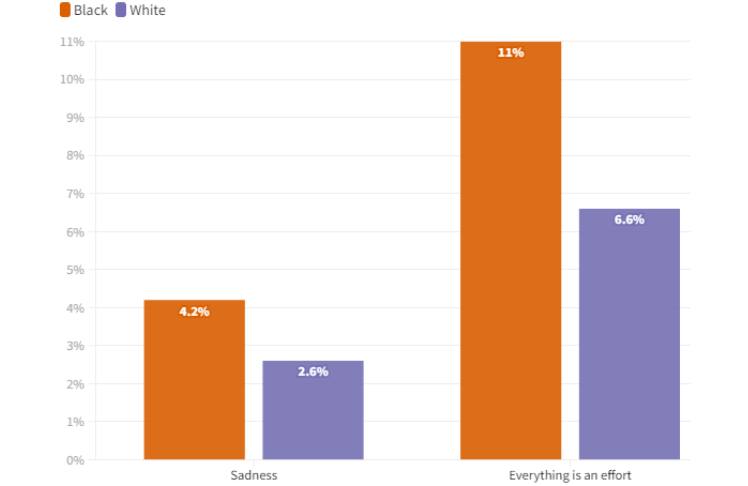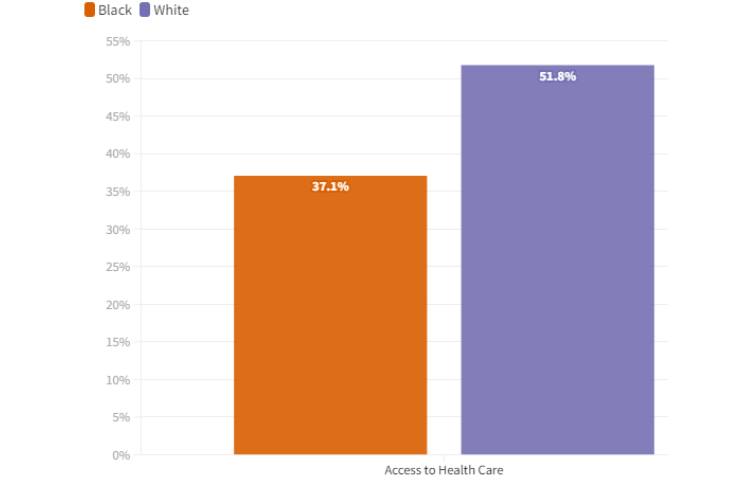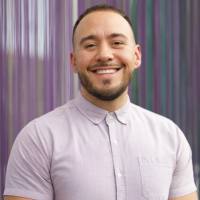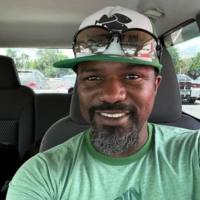“I felt this level of vulnerability, in the sense that, wow this can happen to me too,” he says. “I started thinking, how many men that look like me are navigating some form of depression.”
Shortly after, he connected with other Black men on social media to start conversations on mental health. In 2022, Branch founded the Colorado Men of Color Collaborative, a space for men to support social-emotional well-being, network, and mentoring. As the executive director, he says the collaborative exists to be a safe haven for Black male mental health.
“I was raised in the south, I wasn’t raised to go to the doctors,” he says. “You went to the doctor when you’re literally on deathbed. The whole idea of preventative care wasn’t part of my life structure, it also wasn’t part of my community.”
In 2018, Black adults aged 18 or older experienced higher rates of sadness and feelings that everything is an effort. This is why Black men like Branch are working to shift the narrative of mental health and wellness.
In 2018, Black adults aged 18 or older experienced higher rates of sadness and feelings that everything is an effort

Branch, like many Black men, intrinsically struggled with stigma and bias about mental health spaces. His trauma told him that mental health spaces were not safe for him as a Black man. Now at 41, he’s helping to create those safe outlets.
Jeremy Eddie, 37, is the co-founder of the Colorado Men of Color Collaborative. He says his own mental health journey has been challenging. In part because Black men don’t talk about mental health enough.
Growing up, he dealt with a lot of traumas. Eddies’ mother passed away when he was seven. “I would come home, and she was not there.” Later, his stepmother passed away when he was 21. Both of those experiences became huge triggers for him.
Forced to have tough conversations with his father and brother, this eventually prompted him to get mental health help himself. But Eddie says when Black men hear the words mental health, they often think ‘Am I crazy?’ He encourages folks to shift the question to ‘Are you OK?’
“When I think of stigmas I faced, I didn’t want to be judged. If I’m crying, are they going to think less of me,” he says. “Because that is the stigma, men aren’t supposed to cry. But now I say forget that. If you have some emotions, get them out. It’s OK for other men to see you get emotional.”
Mental health care isn’t exclusive to therapy. The duo says at their collaborative, they’ve become more intentional about the support they offer. For Black men to heal, it could be healing circles, family support, financial literacy, and social norm and support — beyond the classic forms of talk therapy clinicians offer.
Shifting The Narrative of Mental Health, Wellness
Keenan Hart, 32, is the president and chief innovation offer of Fransis, a text-based mental wellness solution that he started in 2021. As a biracial Black man, he says growing up he could see the different approaches to healthcare that the white and Black sides of his family took.
“I saw the classic issues in my family of anxiety, PTSD, substance use disorder, and a lot of addiction in my family,” Hart says. “We never really knew what it was like to access traditional resources like a mental health therapist or a counselor.”
Not everyone can afford to or has the resources to see a psychologist or licensed clinician. In 2020, Black adults aged 18 or older received mental health services at lower rates than white adults.
In 2020, Black adults aged 18 or older received mental health services at lower rates than white adults

“Being raised by an African American father who didn’t have the skill sets or the vocabulary to talk about things like anxiety, stress, or feeling like I was inferior or insecure,” Hart says. “I never was taught how to deal with these emotions that I experienced as a young child.”
Prior to starting Fransis, he started a telehealth company to help increase access to mental health services in Nevada. But he soon realized due to stigma in the Black community, folks were still having a hard time going to see a therapist or counselor.

In his entrepreneurial journey, the ups and downs of being told no started to impact Hart’s personal confidence. So, he started posting one positive message on social media every day. Which is now the foundation of his wellness company. For folks looking for an alternative to mental health services, Fransis subscribers receive one positive text message a day.
“I realize that my job as an African American man is to try and push our family lineage and our culture forward by having conversations around positivity, encouragement, mental wellness, and what those things represent and how they impact our daily lives,” Hart says.
Black Men Deserve…
Talking about mental health can be difficult for anybody. But shifting the language to what Black men deserve can highlight the areas of support they need. Word In Black asked each of the men interviewed for this story what they think Black men deserve.
“We deserve to feel comfortable in our own skin,” Hart says.
“Black men deserve better right now from the media … from our politicians … and from the workplace,” Eddie says. “We deserve better access to health care.”
“I think Black men deserve community support to say that they are loved. Not the touchy-feely type of love — the emotional, I see, I care for you, I want what is best for you type of love,” Branch says. “We’re human. We’re not superhuman. I don’t think our humanity is always treated in that way.”




